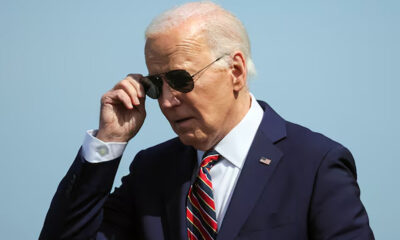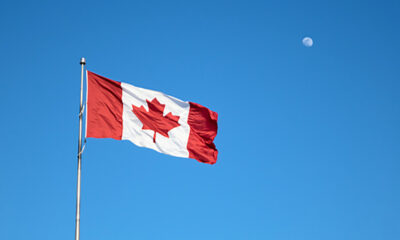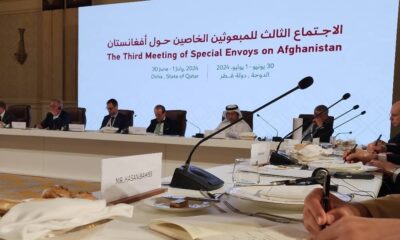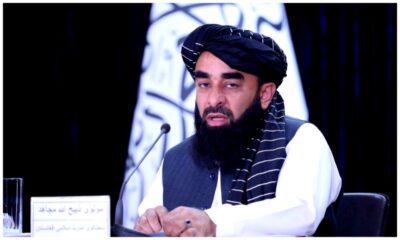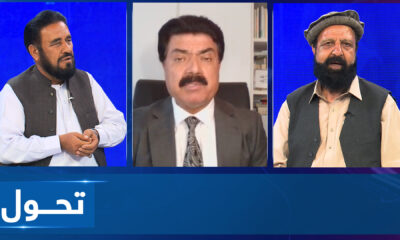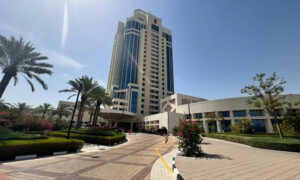Latest News
Pakistan’s Imran Khan party slams defense minister’s hinting at possible operations in Afghanistan
While condemning Asif’s rhetoric, opposition leaders stated that such statements endanger not only the “brotherly” relations between Pakistan and Afghanistan but also regional peace.

Following the Pakistani Defense Minister’s remarks about the possibility of operations against the Tehreek-e-Taliban Pakistan (TTP) in Afghanistan, former prime minister Imran Khan’s Tehreek-Insaf (PTI) on Friday condemned the remarks, saying that Pakistan should not interfere in other countries.
“We don’t allow any interference in our country, so we shouldn’t interfere in any other country,” members of the united opposition in the National Assembly stated in an emergency meeting.
While condemning Asif’s rhetoric, opposition leaders stated that such statements endanger not only the “brotherly” relations between Pakistan and Afghanistan but also regional peace.
“Our ties with India are based on rivalry, and now we are trying to treat Afghanistan similarly. We cannot afford further escalation of the conflict and disorder,” Asad Qaiser, a senior member of PTI, remarked.
He warned that launching attacks inside a neighbouring country would risk pushing the entire region into war.
Omar Ayub, Leader of the Opposition in the National Assembly, highlighted that “even major world powers have faced challenges in Afghanistan, which has always been considered a geostrategic focal point in the region”.
“India is leading many terrorist attacks inside Pakistan. Why didn’t the defence minister remark about launching attacks inside India?” he questioned during a media talk outside parliament.
Pakistan’s Defense Minister Khawaja Asif said on Thursday that under Operation Azm-e-Istehkam, the government could target Tehreek-e-Taliban Pakistan (TTP) hideouts across the border in Afghanistan.
Afghanistan’s Ministry of Defense in a statement, however, slammed the remarks as “careless,” warning of consequences if attacks take place.
Zabihullah Mujahid, spokesman of the Islamic Emirate of Afghanistan (IEA), in a press conference on Saturday, also said that IEA will not allow incursion into Afghan soil.
Related stories:
Pakistan’s defense minister says TTP hideouts in Afghanistan can be targeted
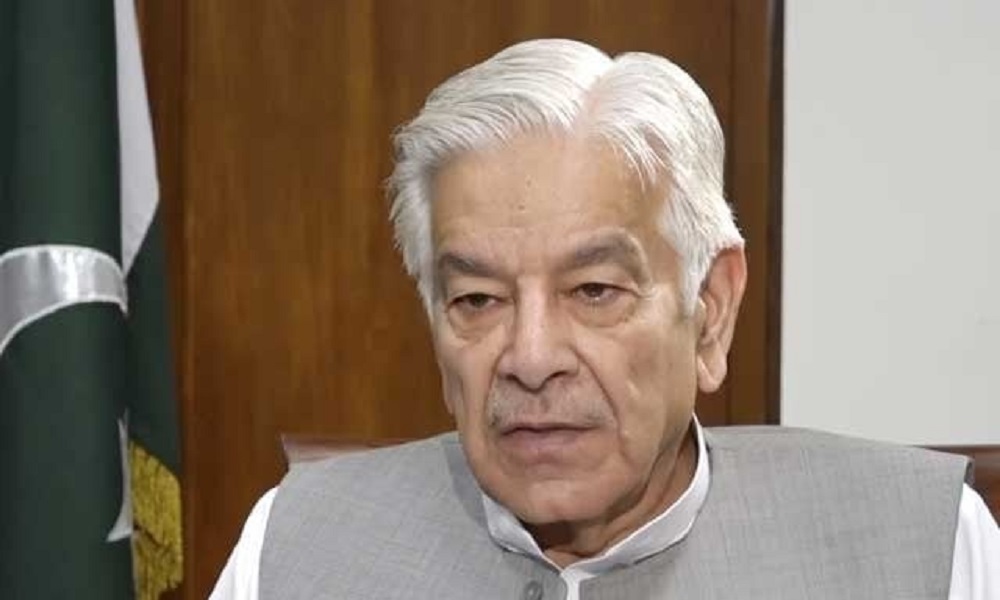
Pakistan’s Ishaq Dar says peaceful, stable Afghanistan will benefit both countries

Latest News
Canada ‘extremely disappointed’ over exclusion of non-IEA Afghans at Doha meeting
“None of the goals that Afghans are seeking to achieve are possible without the full participation of women,” the statement added.

Canada’s foreign affairs department said on Saturday it is “extremely disappointed” over the exclusion of non-IEA Afghans from participating in the main sessions of the third UN-led Doha meeting on Afghanistan.
“Canada has clearly expressed for weeks – both privately and in concert with other governments – its grave disappointment about the absence of civil society from Doha III,” it said in a statement.
The statement emphasized that the “full, equal and meaningful participation” of Afghan women in the Doha meeting process is not only a core tenet of the Women, Peace, and Security agenda, but fundamental to achieving a peaceful, stable, and inclusive Afghanistan.
“None of the goals that Afghans are seeking to achieve are possible without the full participation of women,” the statement added.
The statement also stressed the importance of appointing a UN special envoy for Afghanistan to “spearhead the implementation of the roadmap outlined in the UN Special Coordinator’s 2023 report and UN Security Council Resolution 2721.”
Canada reiterated its call for the IEA to honor Afghanistan’s international human rights obligations and lift restrictive measures on women and girls.
This comes as IEA has said that women’s rights is an internal issue which should not be discussed in international meetings. The Islamic Emirate has also repeatedly said women’s rights are upheld in accordance with Sharia law.
Related stories:
At Doha meeting, IEA delegation says policy differences are ‘natural’, urges lifting of sanctions
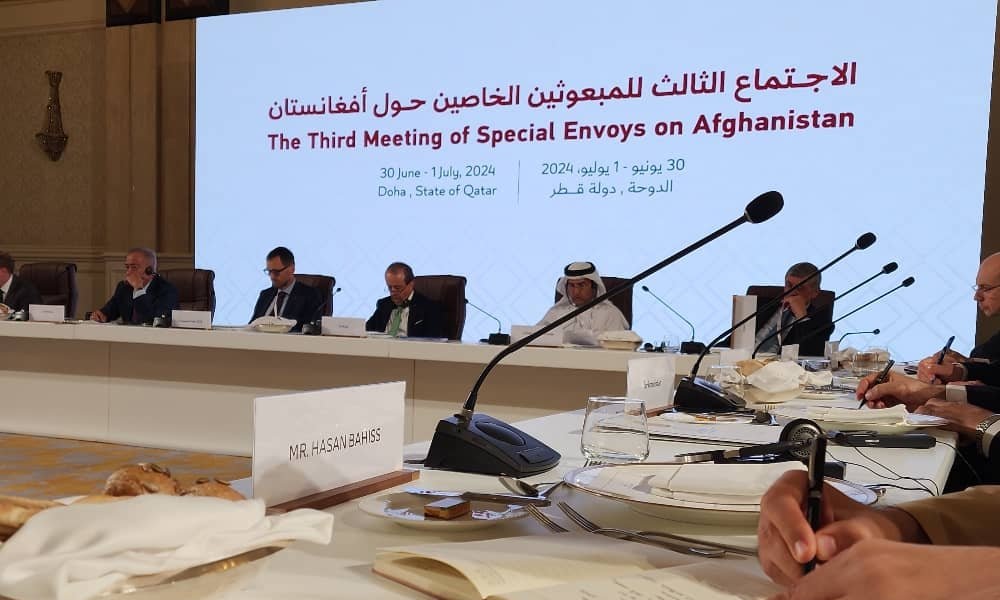
Rights groups upset over exclusion of Afghan women at UN-led Doha meeting

Latest News
At Doha meeting, IEA delegation says policy differences are ‘natural’, urges lifting of sanctions
Mujahid also said that those who are directly involved in atrocities in Gaza “lack the moral standing to lecture us on human rights.”

Addressing the third UN-sponsored international meeting on Afghanistan in Doha, the delegation of the Islamic Emirate said on Saturday that differences between countries regarding each other’s policies are “natural” and that the international community should lift the sanctions imposed on Afghanistan.
Zabihullah Mujahid, the spokesman of the Islamic Emirate, who heads the delegation at the Doha meeting, said at the inauguration of the meeting that the process of easing sanctions is “slow-paced” and this has created various challenges for the government and the private sector.
“Afghans, who have been suffering from war and insecurity as a result of foreign invasions and interference for almost half a century, ultimately, gained independence, ended the war and built a system aimed at fostering positive engagement with the world, however, in return they faced sanctions and restrictions,” Mujahid said.
He admitted that some countries have “problems” with some of the measures of the Islamic Emirates, but added that policy differences between states are “natural.”
“The policy differences should not escalate to the extent that powerful countries use their leverage to impose security, political, and economic pressures on our people, affecting the lives of our nation in a significant way,” he said.
Mujahid pointed out that despite the sanctions, the Islamic Emirate banned the cultivation, processing and smuggling of poppy that affected the world.
He also said that those who are directly involved in atrocities in Gaza “lack the moral standing to lecture us on human rights.”
Related stories:
Afghanistan’s internal issues will not be raised at Doha meeting: Mujahid
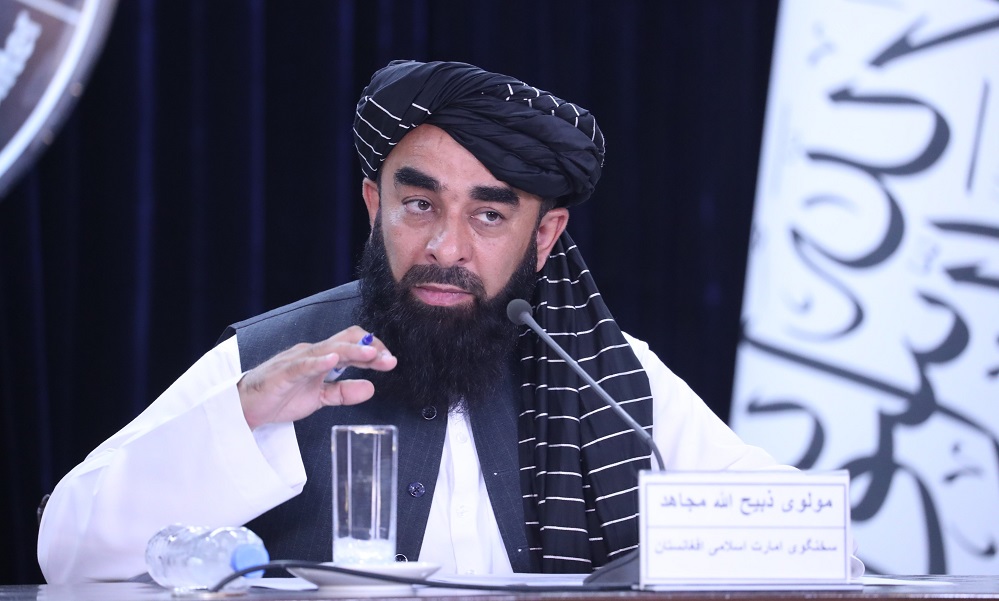
UN-led Doha meeting with IEA not about recognition, says UN
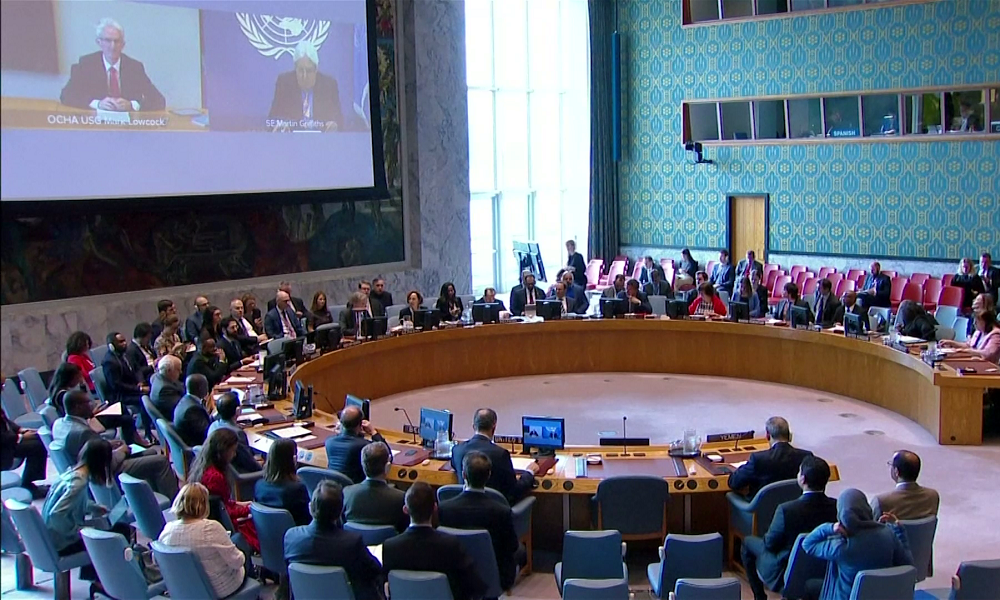
Latest News
IEA calls on Doha meeting delegates to help resolve Afghanistan’s challenges
Mujahid told delegates that the IEA is endeavoring to achieve economic independence by laying the foundations of a self-sustaining and secure national economy.
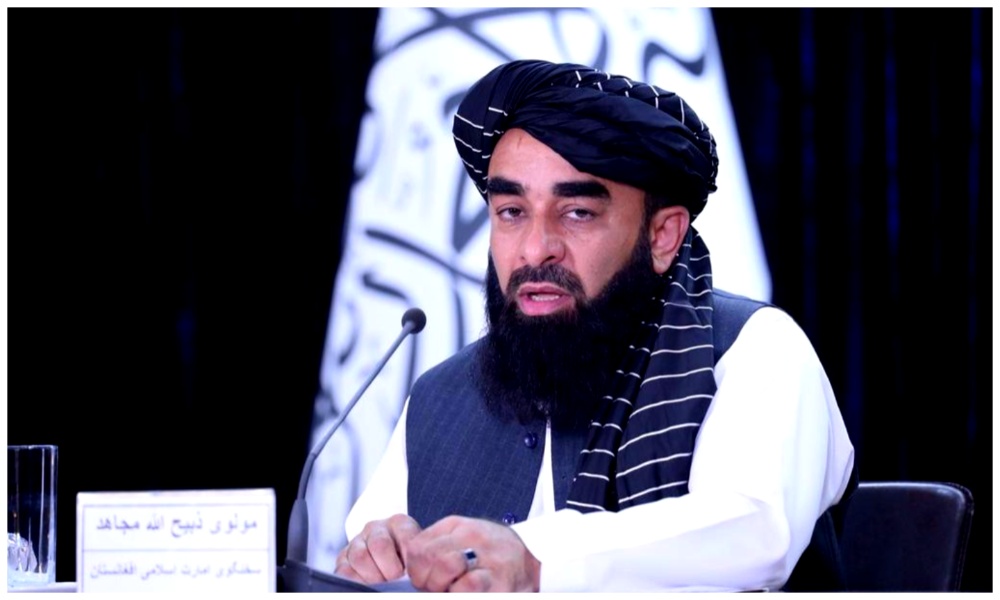
Heading Afghanistan’s delegation to Doha, Zabihullah Mujahid on Sunday called for working groups to be established to resolve three critical issues – the removal of all restrictions and sanctions; the unfreezing of all Afghanistan’s foreign reserves; and finding alternative livelihoods for former poppy farmers.
In his speech to delegates attending the UN-led Doha meeting on Afghanistan, Mujahid said: “We perceive the current Doha meeting as a crucial opportunity to engage in constructive dialogue regarding the unilateral and multilateral sanctions imposed on some officials and our financial and banking sectors, as well as the broader challenges confronting our national economy.”
He said the Doha forum represents a positive step towards addressing Afghanistan’s key challenges but noted that questions were being asked at home as to why no easing of sanctions had been made on the financial and trade sectors.
Mujahid stated that Afghans, who have suffered through almost 50 years of conflict, foreign invasions and interference by other countries had now gained independence, ended the war and built a system aimed at “fostering positive engagement with the world, however, in return they faced sanctions and restrictions?
“Is it fair and appropriate?” Mujahid asked.
He said he knows some countries disagree with the Islamic Emirate’s policies but that it was the duty of experienced diplomats to find ways to interact and understand each other.
“The policy differences should not escalate to the extent that powerful countries use their leverage to impose security, political, and economic pressures on our people, affecting the lives of our nation in a significant way,” he said.
He raised the issue of poppy cultivation and said despite sanctions and outside pressure, the IEA had banned the cultivation, processing and smuggling of poppy.
“Poppy cultivation, which remained as a significant challenge in Afghanistan, we reduced it to almost zero; however, in contrast, instead of recognizing and commending these initiatives, lifting banking restrictions to stimulate the country’s economy and unfreezing national reserves, some countries have continued with their policy of non-cooperation,” he said.
Mujahid told delegates that the IEA is endeavoring to achieve economic independence by laying the foundations of a self-sustaining and secure national economy.
“We are committed to advancing real economic development in Afghanistan, taking initial steps towards creating jobs, establishing factories, lifting people out of poverty, and creating business opportunities for women,” he said.
Acknowledging the countries that provide humanitarian aid, Mujahid implied this was not a solution but that in order to end the humanitarian crisis, the international community needed to remove sanctions, provide development aid and allow the government and people of Afghanistan to utilize their capacities without restrictions for the revival of the national economy.
He spoke on the progress the IEA has made with its neighboring countries in terms of connectivity and mentioned the railway project linking Uzbekistan to Afghanistan and Pakistan. He also touched on the Turkmenistan-Afghanistan-Pakistan-India (TAPI) gas pipeline project.
“In collaboration with Turkmenistan, we have made significant progress regarding the implementation of the ambitious gas pipeline project (TAPI) over the past two years. This milestone ensures positive participation in energy exchange and connectivity between Central and South Asia through Afghanistan,” he said.
He pointed out that a secure Afghanistan benefits the entire region and that ties already forged with regional countries demonstrates the IEA’s commitment to establishing and maintaining good relations.
In light of this, other nations, especially Western countries, can remove obstacles hindering the development of relations with the IEA, he said, emphasizing that differences of opinion “are natural”.
“Like the regional countries, they can take genuine and practical steps toward positive engagement,” Mujahid said.
“The Islamic Emirate of Afghanistan is keen on engaging constructively with Western nations as well. Like any sovereign state, we uphold certain religious and cultural values and public aspirations that must be acknowledged to facilitate progressive bilateral relations rather than encountering disputes and stagnation.
“Our aspiration is for the national sovereignty, independence, values, and preferences of the Islamic Emirate of Afghanistan to be duly respected, as affirmed by the United Nations Charter,” Mujahid said.
He also outlined progress made on a diplomatic note and said: “Just as the regional countries have positively interacted with the current government of Afghanistan as a responsible system, we hope that Western countries will also prioritize mutual bilateral interests in a similar manner.”
Mujahid however slammed “countries and organizations that profess to uphold human rights”. This was in relation to the “ongoing genocide in Gaza, Palestine.”
Without naming countries or organizations, he said: “It is important to note that certain entities directly involved in this humanitarian atrocity lack the moral standing to lecture us on human rights.
In conclusion, he reiterated that in order to ensure the Doha meeting is productive and meaningful, two areas need to be focused on. First was the removal of all restrictions and sanctions and second was the unfreezing of all Afghanistan’s foreign reserves.
“The continued freezing of these reserves has severely impaired the ability of commercial banks to meet the currency needs of their clients, both domestically and internationally,” he said adding that it was also crucial that interactions between
Afghanistan banks and foreign banks resume.
Mujahid’s third point was that alternative livelihoods were needed for Afghan farmers who previously cultivated poppies.
“This is a shared responsibility that must be addressed collectively, and Afghanistan should not be left to manage this challenge alone.
“I propose the formation of working groups to address these issues and look forward to having effective and productive discussions with respected representatives on these matters.”
The UN is hosting its 3rd meeting on Afghanistan. The meeting got underway on Sunday, June 30 and will wrap up on Monday, July 1 in Doha, Qatar.
Representatives from more than 25 countries and international organizations are taking part in the meeting.
RELATED STORIES
Third Doha meeting on Afghanistan gets underway in Qatar
Back from UAE, IEA officials say numerous countries keen to expand ties
-
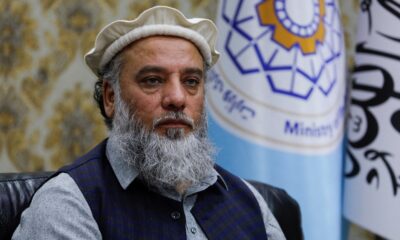
 Business5 days ago
Business5 days agoInstallation of scanners at Afghanistan’s land ports essential, says Azizi
-

 Sport4 days ago
Sport4 days ago‘It is just the beginning for us’, says Rashid Khan after T20 World Cup semi against South Africa
-

 Sport3 days ago
Sport3 days agoIndia hammer England to book T20 World Cup final with South Africa
-

 Sport5 days ago
Sport5 days agoHistory in the making as Afghanistan face South Africa in their ICC T20 World Cup semi-final
-

 Latest News4 days ago
Latest News4 days agoAfghanistan’s mining ministry appoints firm to monitor Afg-Chin Oil and Gas Ltd
-
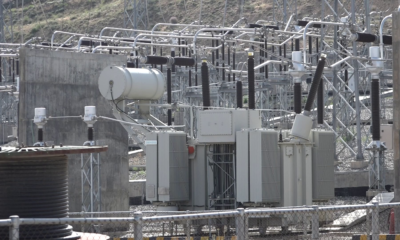
 Latest News3 days ago
Latest News3 days agoRemaining work on the Arghandi 500 kV substation project gets underway
-
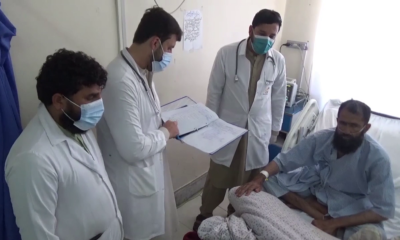
 Health3 days ago
Health3 days agoCases of malaria, cholera and dengue fever on the rise in Nangarhar
-
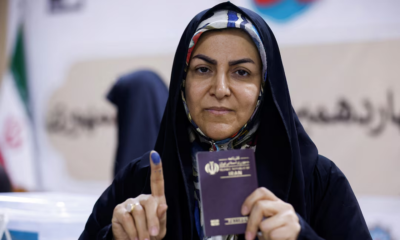
 Regional3 days ago
Regional3 days agoIran’s presidential election officially kicks off


